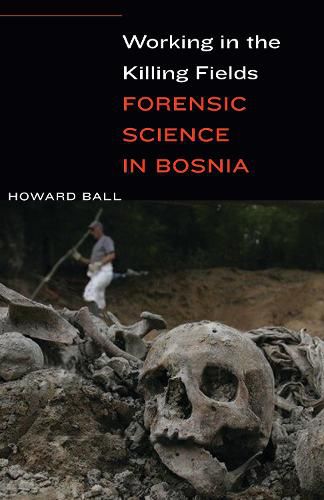Readings Newsletter
Become a Readings Member to make your shopping experience even easier.
Sign in or sign up for free!
You’re not far away from qualifying for FREE standard shipping within Australia
You’ve qualified for FREE standard shipping within Australia
The cart is loading…






While the specificities of individual wars vary, they share a ubiquitous aftermath: the task of finding and identifying the disappeared. The Bosnian war of the early 1990s that destroyed the sovereign state of Yugoslavia is no exception. In Working in the Killing Fields: Forensic Science in Bosnia, Howard Ball focuses on the recent development of forensic science technology and on the work of forensic professionals in Bosnia. The book offers a distinctive approach to war and its aftermath because it balances examination of complex features of new scientific forensic technology with insights into the lives of the men and women from around the globe who are tasked with finding and excavating bodies and conducting pathological examinations, along with explaining the cause of death to both international court criminal prosecutors and surviving families of the victims. Ball considers the physical dangers these professionals regularly confront while performing their site excavations, as well as the emotional pain, including PTSD, they contend with during their time in Bosnia and after they leave the killing fields.
$9.00 standard shipping within Australia
FREE standard shipping within Australia for orders over $100.00
Express & International shipping calculated at checkout
While the specificities of individual wars vary, they share a ubiquitous aftermath: the task of finding and identifying the disappeared. The Bosnian war of the early 1990s that destroyed the sovereign state of Yugoslavia is no exception. In Working in the Killing Fields: Forensic Science in Bosnia, Howard Ball focuses on the recent development of forensic science technology and on the work of forensic professionals in Bosnia. The book offers a distinctive approach to war and its aftermath because it balances examination of complex features of new scientific forensic technology with insights into the lives of the men and women from around the globe who are tasked with finding and excavating bodies and conducting pathological examinations, along with explaining the cause of death to both international court criminal prosecutors and surviving families of the victims. Ball considers the physical dangers these professionals regularly confront while performing their site excavations, as well as the emotional pain, including PTSD, they contend with during their time in Bosnia and after they leave the killing fields.